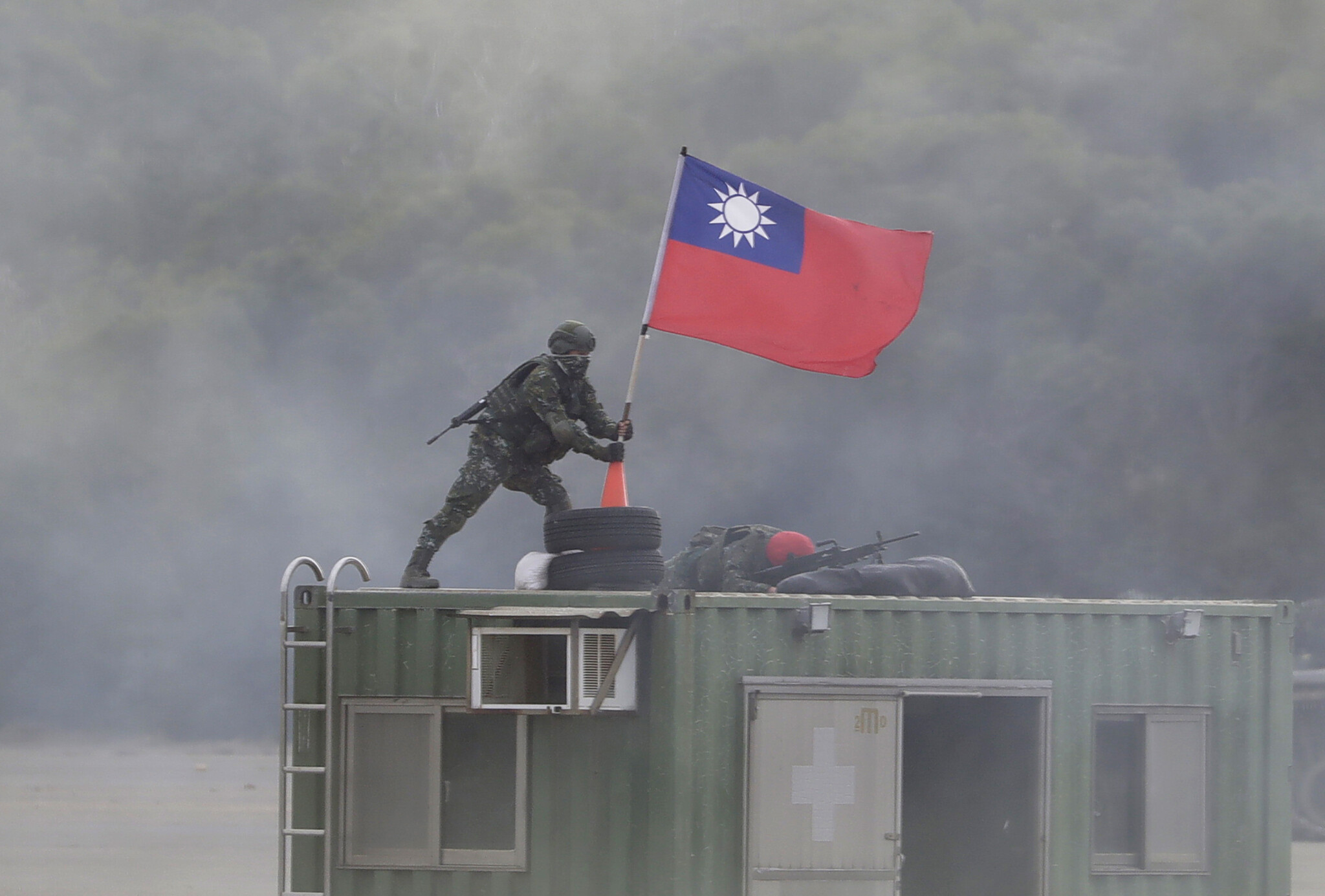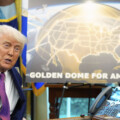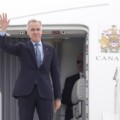As the G7 leaders continue their conversations in Kananaskis, there’s no shortage of major, pressing issues to work through. From Israel’s strikes against Iran, to the war in Gaza, to the still-ongoing Russian invasion of Ukraine, to simmering tensions between India and Pakistan, the geopolitical world is increasingly unsettled.
And yet, perhaps the most consequential geopolitical issue in the world is one that’s seemingly slipped off the front pages: Taiwan. It shouldn’t.
Its fate could determine whether the current international order holds or fractures. It could decide whether democracies stand strong or get steamrolled. And it may well be the spark that triggers the most dangerous global conflict since the Second World War.
The stakes are enormous, and it should be front and centre on the G7 agenda. Taiwan produces over 90 percent of the world’s most advanced semiconductors: chips that power everything from smartphones to cars to defence systems. If China invades its island neighbour, that supply chain collapses. The resulting economic shock would shut down industries, deepen global polarization, and fully push the world back into an era of militarized competition.
Yet the importance of Taiwan goes far beyond technology. Its very existence is a test of whether authoritarian powers can redraw borders by force and get away with it.
If Taiwan falls, it won’t stop there. China’s influence over the Indo-Pacific would surge, and countries like Japan, the Philippines, and South Korea would come under immense pressure to align with Beijing. Other authoritarian regimes would be watching closely, learning that coercion works and democracy can be bullied into retreat.
In short, Taiwan isn’t just a regional issue. It is the fulcrum of global stability.
Canada can’t afford to look away
In World on the Brink, Dmitri Alperovitch argues that the Taiwan Strait is the most dangerous place on Earth. He warns that the next few years will determine whether deterrence holds or collapses under the weight of strategic miscalculation. CCP leader Xi Jinping has publicly directed the Chinese military to be ready to invade Taiwan by 2027. This isn’t a theoretical risk. It is a countdown.
And yet, Canada has largely stayed on the sidelines, hedging, equivocating, and avoiding the hard conversations. That approach is no longer tenable.
As a new government settles in, a new minister of foreign affairs takes office, and Prime Minister Mark Carney tries to reset the country’s foreign policy agenda, Canada has the chance to correct the course. Taiwan policy must be included, not just as a foreign policy item, but as a cross-cutting issue that touches security, trade, innovation, and global democratic stability.
This is a test of Canada’s values
Taiwan is a vibrant, pluralistic democracy. It protects freedom of speech, LGBTQ+ rights, press freedom, and democratic accountability in a region where those values are increasingly rare. Supporting Taiwan isn’t just a strategic move. It is a moral one.
For decades, Canada has positioned itself as a defender of human rights and the rules-based international order. But rhetoric without action is hollow. If we truly believe in democracy, then Taiwan deserves more than carefully worded statements. It deserves our solidarity.
The recent decision to shut down debate on granting honourary Canadian citizenship to Jimmy Lai—a Hong Kong-based pro-democracy advocate imprisoned by Beijing—signals a troubling willingness to appease the Chinese Communist Party. It raises the question: if we’re not willing to stand with individuals like Lai, are we truly prepared to stand with Taiwan?
This is also a matter of strategy
A principled Taiwan policy doesn’t conflict with Canada’s national interests. It advances them. The U.S. is realigning its economic and security partnerships around its geopolitical competition with China.
Let’s be clear. I’m not arguing for increased dependence on the U.S.; Canada should diversify its trading relationships. But that diversification must be with democracies (even flawed ones), not authoritarian regimes that manipulate trade and suppress dissent.
We’ve already experienced the risks of overreliance on China. From blocked Canadian exports to arbitrary detentions to election interference, Beijing has repeatedly used economic and political leverage to punish noncompliance. The idea that a “balanced” relationship with China will protect our interests is no longer credible.
If we want access to secure supply chains in semiconductors, electric vehicles, or defence, we need to show that we are aligned with the allies shaping those systems.
What Canada should do
There’s no shortage of ways Canada can step up:
- Appoint a dedicated Indo-Pacific envoy with a mandate to strengthen ties with Taiwan and build coalitions to deter aggression.
- Meet NATO’s 2 percent defence spending commitment, with a focus on Indo-Pacific capabilities and cybersecurity. (Carney’s recent defence spending announcements are a welcome sign, but follow-through is key.)
- Host a Canadian-led “Summit of Democracies,” including Taiwan as a full participant.
- Negotiate bilateral trade and investment agreements with Taiwan to reduce risk and deepen economic ties with democratic partners.
None of this requires provoking China. But it does require courage. Silence, ambiguity, and passivity are not strategies. They are decisions to let others determine the future of global security.
The choice ahead
With a new government in place, Canada has a moment to lead. To be clear about our values. To be smart about our interests. And to be bold enough to act.
Taiwan is not just another foreign policy file. It is a mirror, one that reflects who we are and what kind of world we are willing to fight for.
We often say Canada wants to punch above its weight. Here’s our chance.
Let’s stop hedging. Let’s show up. Let’s lead.









